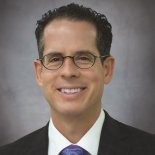About Arrhythmia
Arrhythmias, or heart rhythm disorders, occur when the heart beats too fast, slow, or irregularly. The most common arrhythmia is atrial fibrillation (AFib). Left untreated, arrhythmias are a leading cause of stroke and can cause severe health issues or death.
BayCare provides extensive care for arrhythmias through its team of specialized heart rhythm experts. With their extensive training and experience, BayCare’s heart rhythm disorder specialists, cardiologist specialists and cardiac electrophysiologists ensure high-quality heart care including advanced diagnostic and treatment options throughout West Central Florida.
Types of Arrhythmias
-
Atrial Fibrillation
-
Atrial Flutter
-
Bradycardia
-
Long QT Syndrome
-
POTS
-
Sick Sinus Syndrome
-
Supraventricular Tachycardia
-
Ventricular Tachycardia
-
Ventricular Fibrillation
-
Wolff-Parkinson-White Syndrome
- Chest pain
- Heart palpitations
- Paleness
- Sweating
- Rapid heartbeat or palpitations
- Fainting (syncope)
- Light-headedness or dizziness
- Shortness of breath
If you're experiencing pressure, heaviness or pain in the chest, arm or below the breastbone alone or in combination with sweating, nausea, extreme shortness of breath or irregular heartbeats, you may be having a heart attack. Call 911 immediately.
Causes and Risk Factors
Some common causes of abnormal heartbeats are:
- Abnormal levels of potassium or other substances
- Heart attack, or a damaged heart muscle from a past heart attack
- Congenital Heart Disease
- Heart Failure
- An enlarged heart
- An overactive thyroid gland
- Medication or drug side effects
Risk factors for developing a heart rhythm disorder may include:
- Smoking
- Drinking alcohol or caffeine
- Having a high BMI (body mass index)
- Being overweight or obese
- High blood sugar
- Having sleeping issues like sleep apnea
- Taking medications that contain certain stimulants
Diagnosing Arrhythmia
To diagnose an arrhythmia, your cardiologist may refer you to an electrophysiologist (EP), a cardiologist who specializes in heart rhythm disorders. Some tests an EP may use to diagnose a heart rhythm disorder include:
-
Blood Tests
-
Cardiac CT or MRI
-
Electrocardiogram
-
Genetic Testing
-
Holter Monitor
-
Loop Recorder
-
Stress Test
-
Echocardiogram
-
Tilt Table Test
-
Electrophysiologist Study
-
Diagnostic Cardiac Catheterization
A loop recorder is a small, implanted device designed to record the heart’s rhythm 24 hours a day for up to three years. Loop recorders can be placed by your cardiologist in their office or by an electrophysiologist inside the electrophysiology lab. Loop recorder implantation is performed at these BayCare facilities:
This test involves exercising on a treadmill or using medications to stress the heart while being closely monitored. When extra images are taken before and after exercising, it’s called a nuclear stress test. These tests can detect coronary blockages that might be causing arrhythmias. Stress tests can be performed at the following BayCare hospitals:
This is a specialized test where an EP physician tests and maps the heart’s electrical systems to look for heart rhythm problems. It’s typically performed in a hospital using catheter-based technology and highly specialized equipment. EP studies are performed at the following BayCare hospital locations:
This procedure allows your cardiologist to test pressures inside your heart and look at how the coronary arteries are functioning. If blood vessels are narrow or blocked, it can cause arrhythmias. To view the arteries, a specialized cardiologist uses an imaging process called coronary angiography where contrast material and x-rays are used to see and photograph areas of the heart’s blood vessels as the contrast moves through. If needed, your cardiologist can also take a biopsy through the catheter as well. Cardiac catheterizations are performed at the following BayCare locations:
- BayCare Hospital Wesley Chapel
- Bartow Regional Medical Center
- Mease Countryside Hospital
- Mease Dunedin Hospital
- Morton Plant Hospital
- Morton Plant North Bay Hospital
- South Florida Baptist Hospital
- St. Anthony's Hospital
- St. Joseph's Hospital
- St. Joseph's Hospital-North
- St. Joseph's Hospital-South
- Winter Haven Hospital
-
Lifestyle Changes
-
Medications
-
Surgery
-
Cardiac Ablation
-
Implantable Cardiac Defibrillator
-
Pacemaker
-
Cardioversion
Different types of medications can be used to manage arrhythmias. These drugs are typically prescribed by your cardiologist or electrophysiologist.
- Anti-arrhythmic medications: These drugs help regulate heart rate and prevent arrhythmias and work by reducing the movement of abnormal electrical signals in the heart tissue or decreasing the abnormal signals from the sinus node of the heart. Examples of these medications include adenosine, digoxin, amiodarone, propafenone and flecainide.
- Calcium channel blockers: Though normally used to treat the symptoms of coronary artery disease, these drugs can slow your heart rate and reduce the risk of an arrhythmia occurring.
- Beta blockers: These medications work by blocking the effects of the body hormone adrenaline and slowing your heart rate down.
- Anticoagulants: Also called blood thinners, these are drugs that help to prevent the blood from clotting and are often prescribed to reduce the risk of a stroke.
- BayCare Hospital Wesley Chapel
- Bartow Regional Medical Center
- Mease Countryside Hospital
- Mease Dunedin Hospital
- Morton Plant Hospital
- Morton Plant North Bay Hospital
- South Florida Baptist Hospital
- St. Anthony's Hospital
- St. Joseph's Hospital
- St. Joseph's Hospital-North
- St. Joseph's Hospital-South
- Winter Haven Hospital
- BayCare Hospital Wesley Chapel
- Bartow Regional Medical Center
- Mease Countryside Hospital
- Mease Dunedin Hospital
- Morton Plant Hospital
- Morton Plant North Bay Hospital
- South Florida Baptist Hospital
- St. Anthony's Hospital
- St. Joseph's Hospital
- St. Joseph's Hospital-North
- St. Joseph's Hospital-South
- Winter Haven Hospital
- BayCare Hospital Wesley Chapel
- Bartow Regional Medical Center
- Mease Countryside Hospital
- Mease Dunedin Hospital
- Morton Plant Hospital
- Morton Plant North Bay Hospital
- South Florida Baptist Hospital
- St. Anthony's Hospital
- St. Joseph's Hospital
- St. Joseph's Hospital-North
- St. Joseph's Hospital-South
- Winter Haven Hospital
Living With Arrhythmia
With proper clinical care and management, you can live a long, healthy and active life with a heart rhythm disorder. Below are some tips for living with a heart rhythm disorder:
- Keep a symptom journal: If you notice symptoms, it can help to track what you were doing before they started. Write down details like what you ate or drank, any activities you were doing, or any medications or supplements you took.
- Have a plan for fainting (syncope): Fainting can be a symptom of several different arrhythmias. It's important to recognize signs that may lead to fainting, such as dizziness. If you're prone to fainting, sitting down on the floor or ground can help prevent injury.
- Consider a medical ID necklace or bracelet: Wearing a medical ID item may alert bystanders and first responders of your condition quickly.
- Understand your risk for sudden cardiac arrest (SCA): Some rhythm disorders can cause a fatal heart rhythm leading to SCA. Talk to your cardiologist or electrophysiologist to make a plan for SCA, which may include getting an ICD device, having your loved ones trained in CPR, or having an automated external defibrillator (AED) at home.
Additional Resources

Heart Rhythm Disorders
Heart arrhythmias are an irregular heartbeat. It feels like a fluttering or a racing heart sometimes and can often be harmless. However, some heart arrhythmias may be indicative of serious underlying conditions. Listen to Dr. Rodrigo Bolanos, the electrophysiology lab director, director of Arrhythmia Services at Bostick Heart Center at Winter Haven Hospital, and the Co-chair of the Arrhythmia Committee for BayCare Health System discuss heart rhythm disorders and when you should see a specialist.
Need a cardiac specialist?
Call us at (855) 233-0888 or fill out the form to request a referral to a cardiac specialist.


